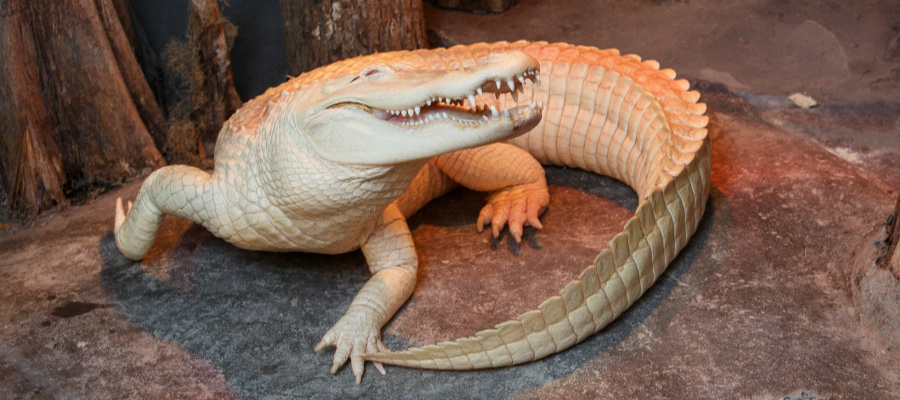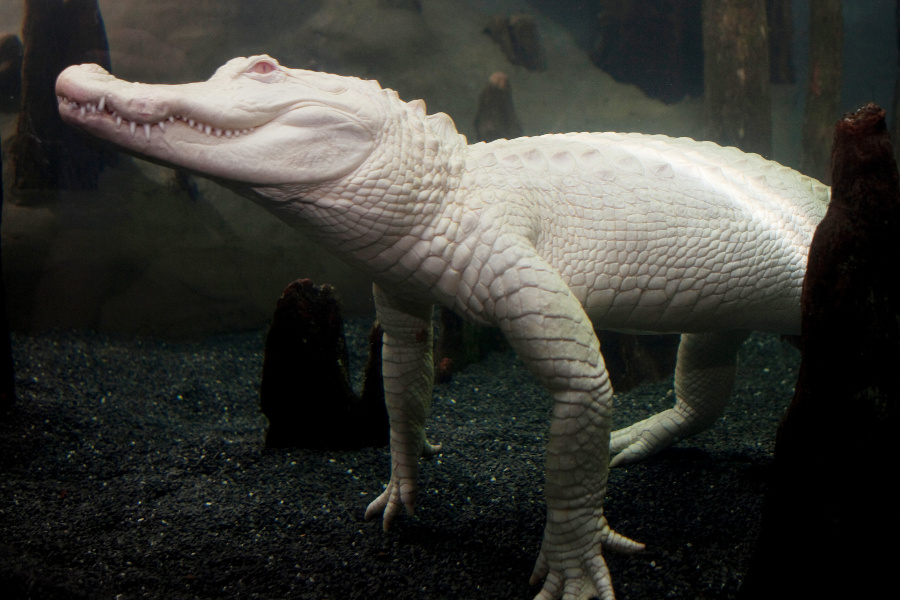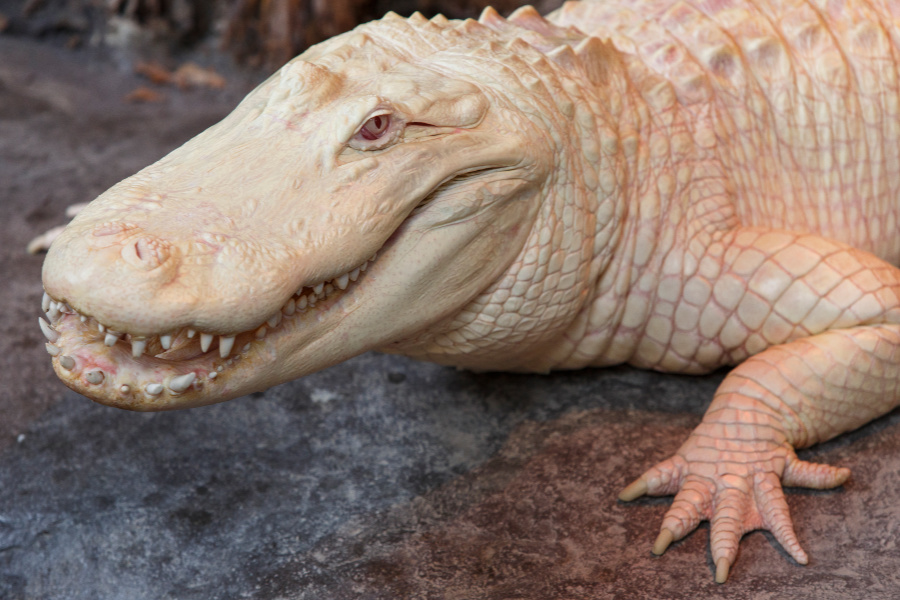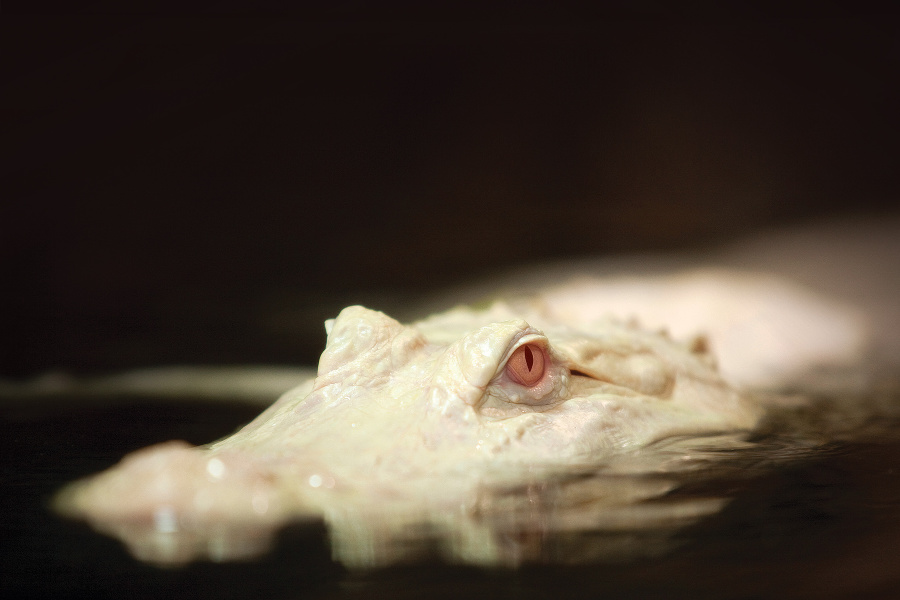Remembering Alabaster
Today, we lost a treasured member of our Aquarium family – Alabaster the albino American alligator.
Alabaster came to the South Carolina Aquarium in 2009. He had albinism, a condition where he lacked melanin (or coloration) in his skin and eyes. Albino alligators are extremely rare – it is estimated there are only about 50 in the world. Albino animals have sensitivities to light, poor eyesight and are prone to skin issues. They also cannot camouflage themselves, leaving them exposed to predators. Because of these factors, Alabaster could not have survived in the wild.
Animal care has always been our top priority, and Alabaster was no exception. We knew he was susceptible to some health issues that a typical alligator isn’t, so we always monitored him closely.
When Alabaster began showing alarming health concerns last week, we sprang into action with a treatment plan and consulted with experts around the country. He had no appetite and his skin began displaying red discoloration. Though Alabaster has had minor skin issues in the past (not unusual for an animal with albinism), they were always isolated to a specific area and quickly resolved.
We decided to sedate him and perform a full examination. We administered antibiotics, vitamins and nutrition, took blood and skin samples to test and treated him with a topical ointment. Vet staff confirmed that Alabaster’s body was fighting off an infection, manifesting itself as the red discoloration. Alabaster came out of his sedation, but it was clear this infection was taking a toll on his body.
Through the weekend, we continued to closely monitor Alabaster. At times, he was alert and moving, but he would easily fatigue himself. We adjusted the water levels in his tank to support his body weight, and sent off blood samples for analysis to see if we could determine the root cause of his infection. Our veterinary and husbandry staff continued conversations with colleagues around the country to evaluate his health and treatment plan.
Alabaster received two more rounds of treatment this week, including fluids, antibiotics, vitamins and nutrient supplementation. Unfortunately, Alabaster wasn’t showing significant signs of improvement. Despite our best efforts, Alabaster passed away this morning.
We feel so fortunate to have had Alabaster as a beloved member of our Aquarium family for nearly ten years. He was a “fan favorite,” for both staff and guests alike. Alabaster would stay still for hours at a time, leading people to often question if he was, in fact, a real alligator. He had countless admirers, especially when he flashed his toothy grin. Some may have only taken note of his stillness, but he was so much more than that. Alabaster served as an incredible ambassador for the American alligator species and was an inspiration for many to care about the natural world.
Many of the breakthroughs we have had are thanks to our colleagues at other zoos and aquariums working with this signature species, along with the widespread reptile knowledge from our own herpetologist and veterinarian. There’s still so much we can learn about these animals. We’re still doing all that we can to determine what Alabaster was fighting, in the hopes that sharing our findings can help others working with this rare and special animal.





